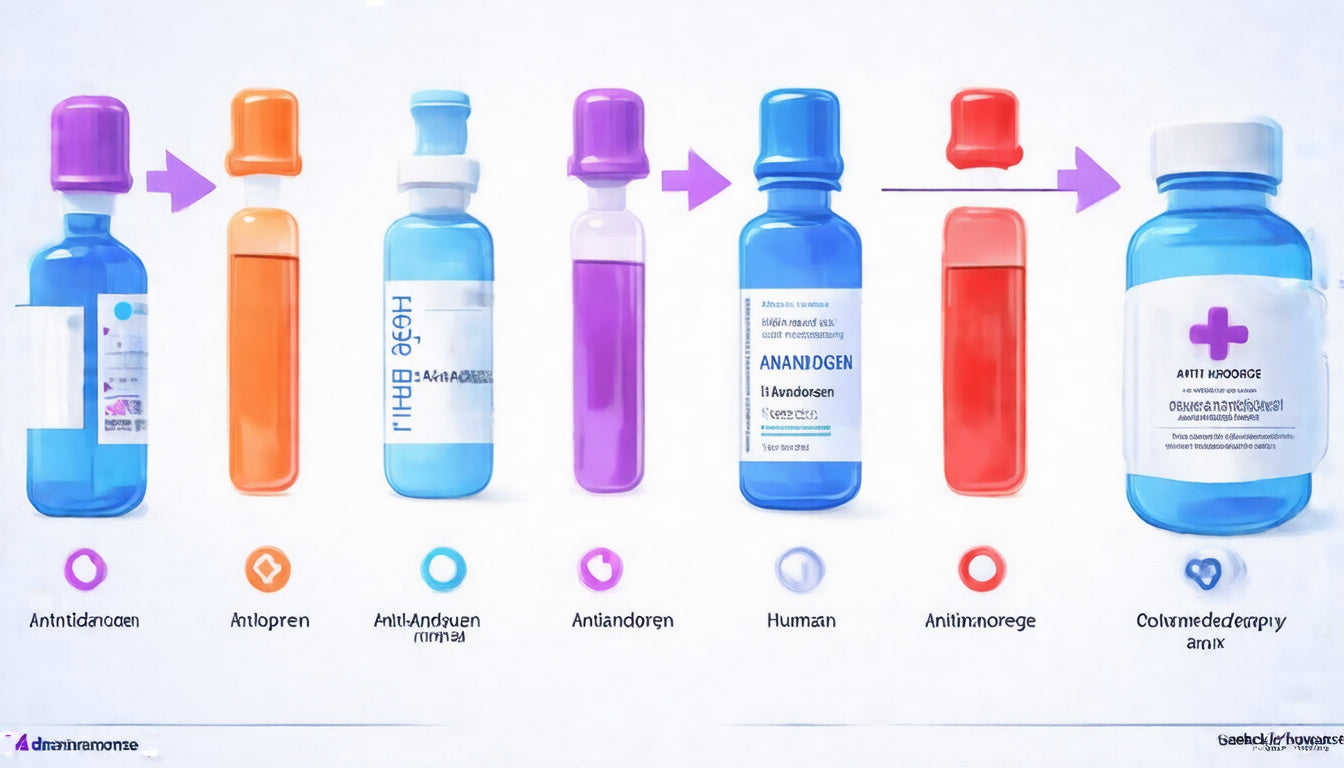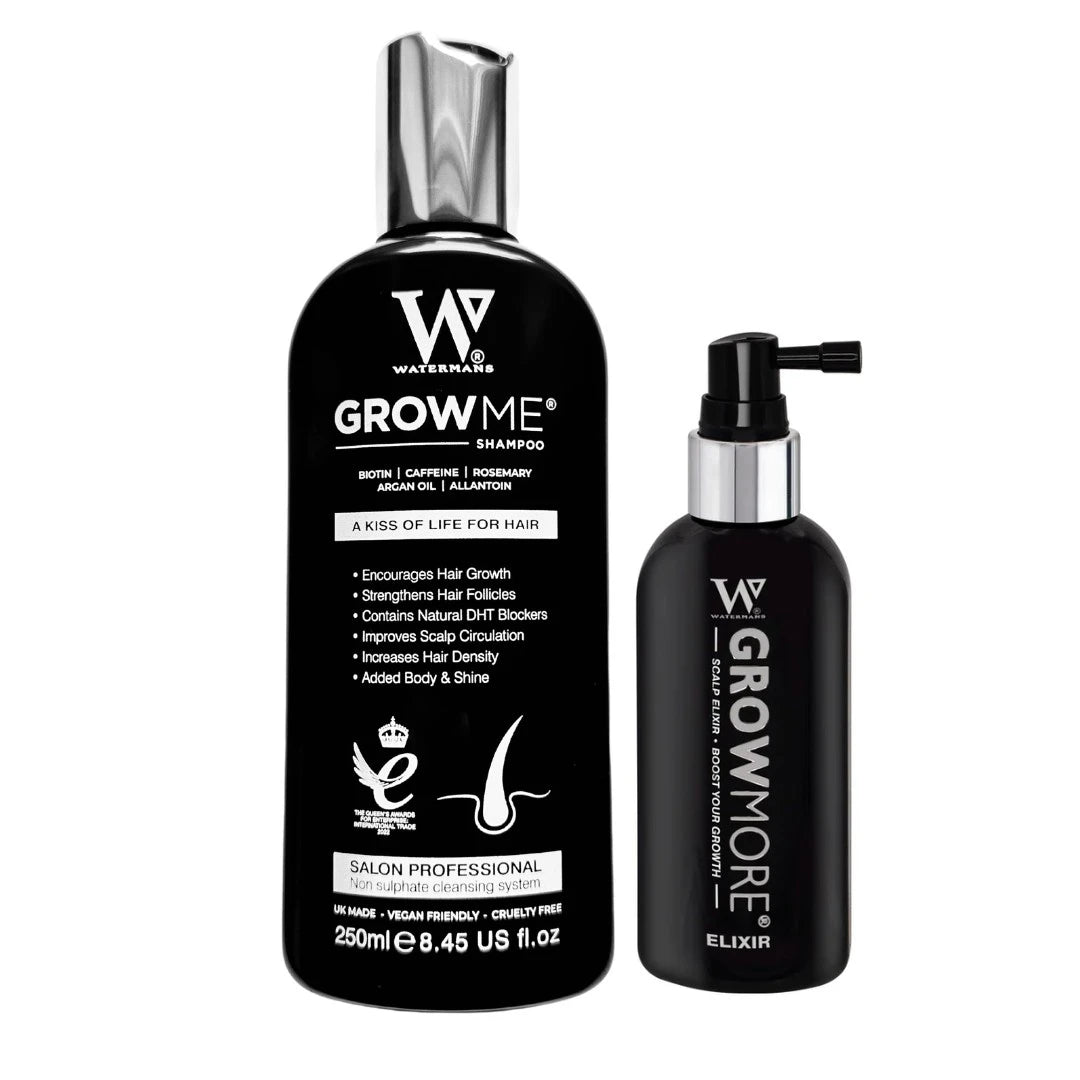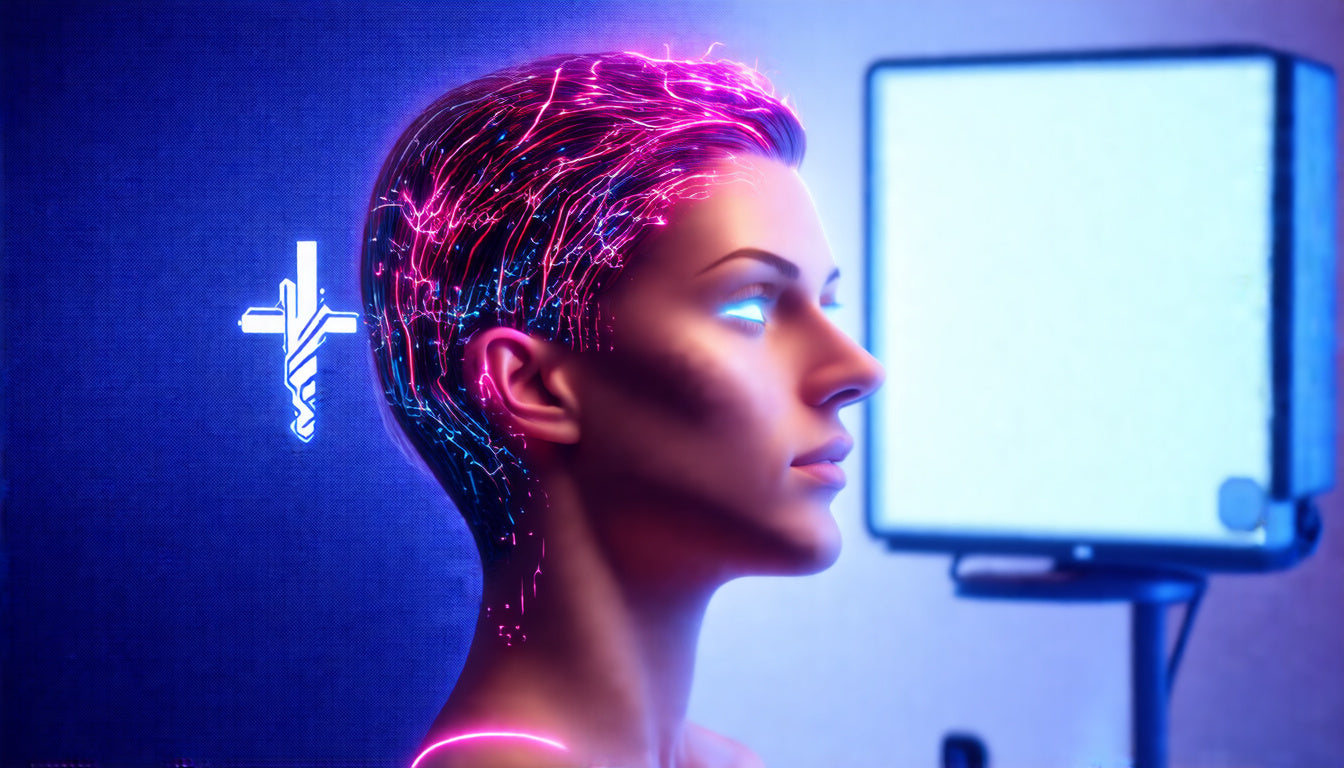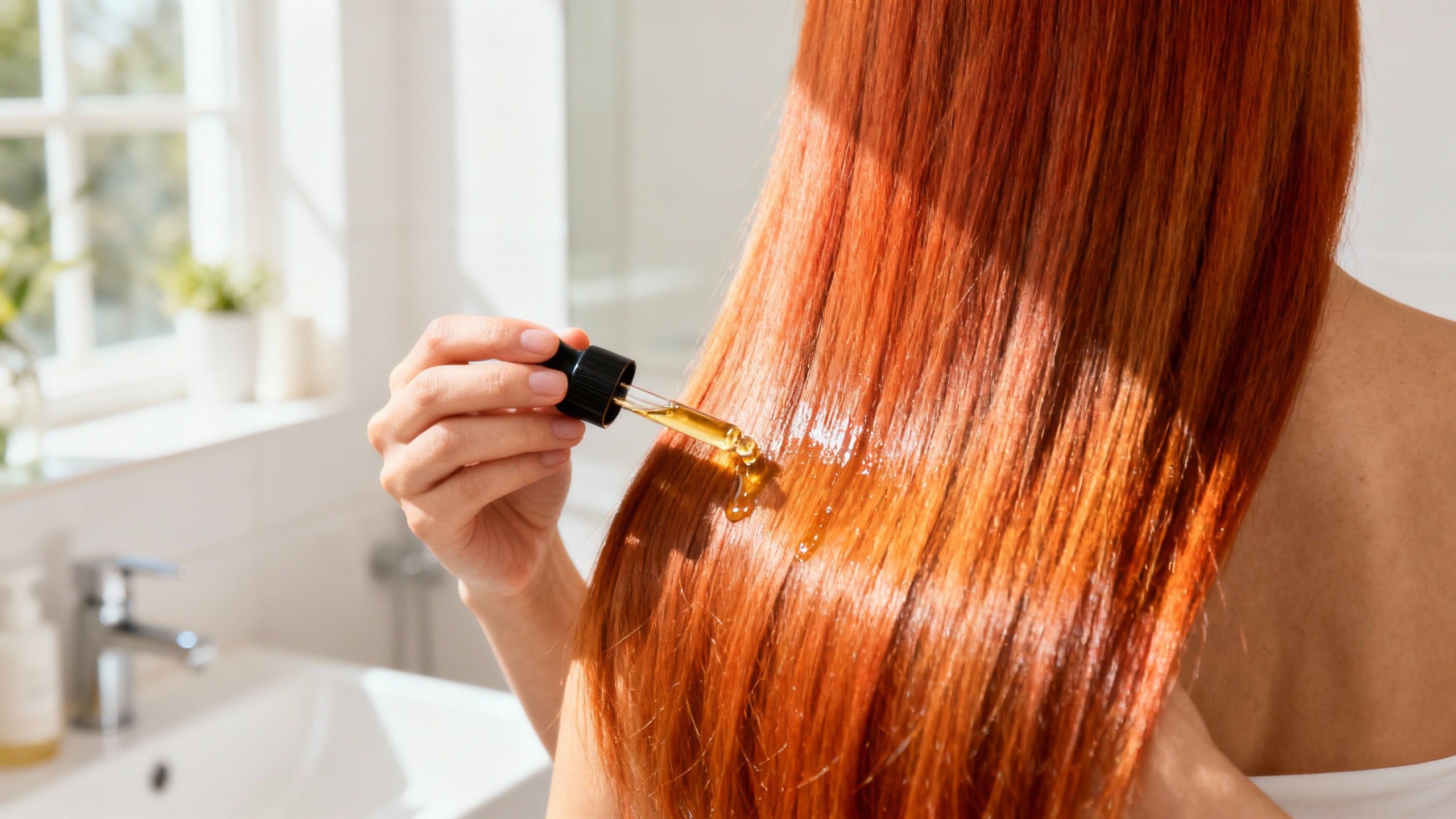
Antiandrogen Therapy: Benefits, Side Effects, and Treatment Options Explained
Antiandrogen therapy cuts or blocks the work of male hormones like testosterone. It stops and limits these signals to help with problems. Doctors use this care for prostate cancer, hair loss, extra hair, and skin issues. Clear ideas of the process, gains, risks, and choices help patients and caregivers give care.
If you seek a natural fix for hair thinning linked to hormone effects, try Watermans Grow Me Shampoo. This shampoo uses Biotin, Rosemary, Caffeine, and Niacinamide. It works at the scalp and from the roots.
What Is Antiandrogen Therapy?
Antiandrogen therapy stops male hormones. Drugs fill receptors on cells or drop hormone output. Androgens make male traits and help fertility. In excess, they harm some tissues. Blocking them helps ease these conditions.
Common Medical Uses of Antiandrogen Therapy
- Prostate Cancer: Androgens feed cancer cells. Drugs slow growth.
- Androgenetic Alopecia: Hormones shrink hair follicles. This may lead to pattern hair loss.
- Hirsutism: Extra hair in women drops with less hormone action.
- Acne and Seborrhea: Hormone-driven skin issues can ease.
- Transgender Hormone Therapy: Some treatments distract male hormones in male-to-female care.
How Does Antiandrogen Therapy Work?
Antiandrogens act in two ways:
-
Blocking Androgen Receptors
Drugs attach to cell receptors. They stop testosterone and DHT from triggering growth. -
Reducing Androgen Production
Some drugs lower the body’s hormone supply. This cuts the signals that harm tissues.
Benefits of Antiandrogen Therapy
Antiandrogens bring clear gains for various issues:
1. Slowing Prostate Cancer
Cancer cells need male hormones to grow. Blocking these signals slows the cancer and can improve life quality.
2. Reducing Hair Loss
Drugs block DHT on hair roots. This step helps slow or reverse thinning.
3. Controlling Extra Hair Growth
In women, hormone-driven hair loss slows when receptors become less active.
4. Improving Hormonal Acne
Less hormone action can clear tough acne by lowering oil levels.
Common Antiandrogen Medications and Treatment Options
Several drug types work to block or reduce hormones.
1. Non-Steroidal Antiandrogens
- Examples: Bicalutamide, Flutamide, Enzalutamide
- Use: Mostly for prostate cancer.
- How: They attach to receptors without sparking a signal.
2. Steroidal Antiandrogens
- Examples: Cyproterone acetate, Spironolactone
- Use: For extra hair, skin issues, and sometimes cancer.
- How: They block receptors and cut hormone numbers.
3. 5-Alpha-Reductase Inhibitors
- Examples: Finasteride, Dutasteride
- Use: For hair loss and mild prostate problems.
- How: They stop the enzyme from making DHT from testosterone.
4. GnRH Agonists
- Examples: Leuprorelin, Goserelin
- Use: In advanced prostate cancer.
- How: They drop testosterone release from the testicles.
Natural Alternatives and Complementary Options for Hair Loss
For hair thinning, you may try natural products. One option is Watermans Grow Me Shampoo. This shampoo mixes natural parts that act at the scalp. Its gentle touch makes it a safe choice when compared with drugs.
Benefits include:
- It wakes the scalp and the roots.
- It helps restore hair from the base.
- It uses Argan Oil, Niacinamide, Lupin Protein, and Allantoin.
- It avoids strong chemicals and fits daily use.
Pair this with any care prescribed by your doctor.
Potential side effects can vary widely, and it's important to weigh benefits and risks before starting therapy.

Potential Side Effects of Antiandrogen Therapy
Antiandrogens work well, but they can also bring risks. These effects change with the drug and the dose.
Common Side Effects
- Tiredness and weakness
- Hot flushes and extra sweating
- Lower desire and issues with erection
- Breast enlargement in men
- Weight gain
- Mood shifts and low mood
- Upset stomach
Less Common, Serious Effects
- Liver problems (seen in some non-steroidal drugs)
- Heart risks
- Bone loss that may lead to osteoporosis
Patients on these drugs need regular checks and tests.
Antiandrogen Therapy vs. Natural Hair Growth Solutions
For hair thinning, you may choose between drugs or natural care. Compare these options:
| Aspect | Antiandrogen Therapy | Natural Hair Growth Solutions (e.g., Watermans Grow Me Shampoo) |
|---|---|---|
| Effect | Works fast in many cases | Helps and spurs hair growth; may work slower but is safe |
| Side effects | Can affect the whole body | Few risks, with a local effect on the scalp |
| Price | May cost more and needs a prescription | Usually low cost and available without prescription |
| Ease | Needs doctor oversight | Fits easily into daily hair care routines |
| Best for | Moderate to severe hair loss | Early thinning or keeping hair in a good state |
Try a product like Watermans Grow Me Shampoo. For a full care set, see the Watermans Hair Survival Kit.
Frequently Asked Questions About Antiandrogen Therapy
-
What conditions do antiandrogens treat?
They help with prostate cancer, hair loss, extra hair problems, and skin issues. They also play a part in male-to-female care. -
Can they help with hair loss in women?
Yes. Drugs like spironolactone work by cutting hormone action on hair follicles. -
Do these treatments have side effects?
Yes. They may cause tiredness, lower desire, hot flushes, or more serious risks. Always talk with a doctor first.
Additional Resources
For more on how male hormones lead to hair loss, visit the American Hair Loss Association for trusted advice (source: American Hair Loss Association).
If you or a loved one face hair thinning or other hormone-related issues, try Watermans Grow Me Shampoo. Its mix of Biotin, Rosemary, Caffeine, and other pure parts works from the roots to boost hair thickness. For further care, consider the Watermans Hair Survival Kit to back your hair care routine safely and well. Begin your path to thicker hair today!













